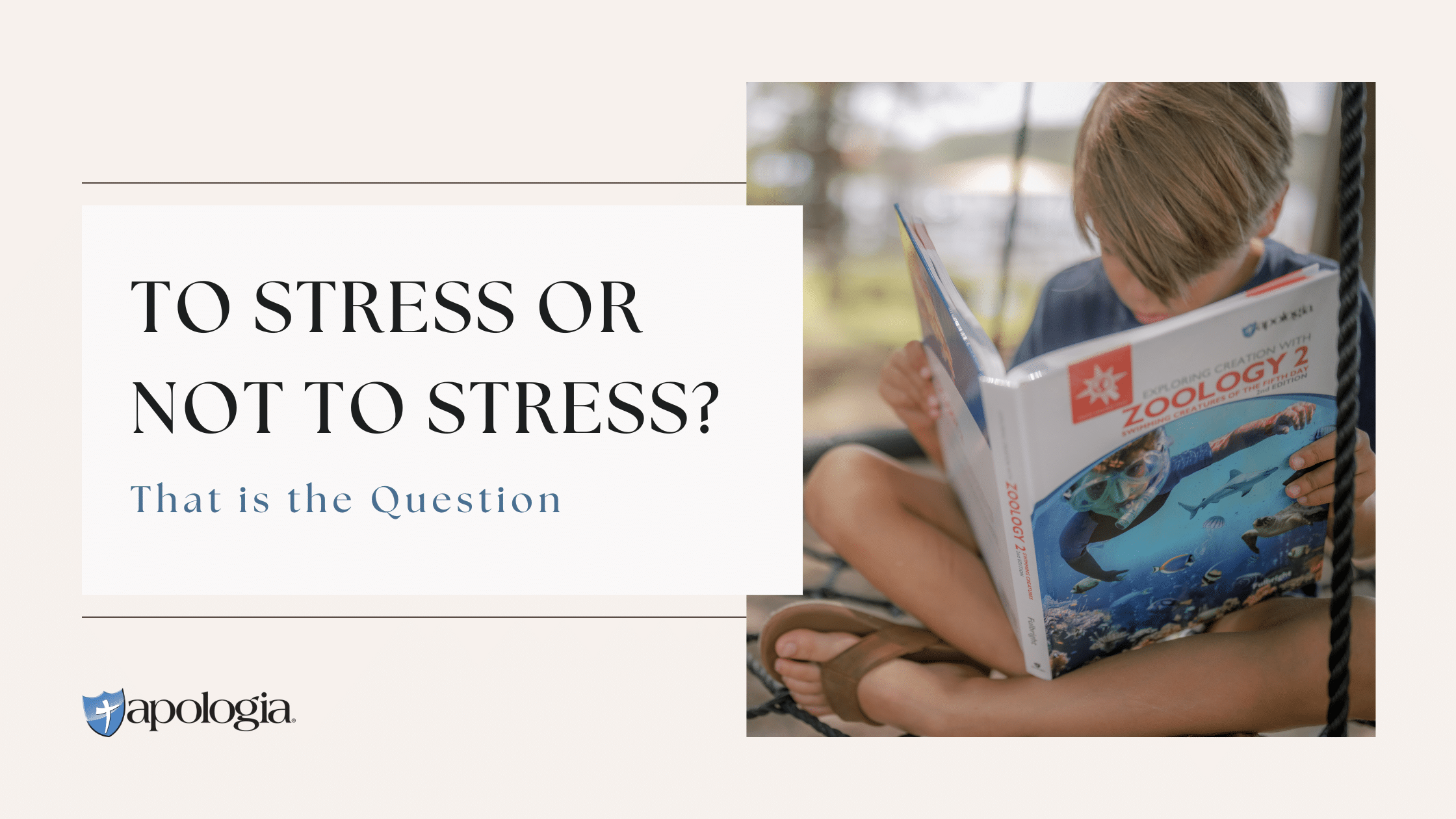
To Stress, or Not to Stress? That is the Question
Five-, six-, and seven-year-old children are naturally curious. They enjoy exploring the world around them and playing games that involve imagination (like make-believe). Most parents would agree that these kids are also still pretty dependent on Mom and Dad. For them, snuggling is an important source of personal security, and when you tuck your little ones into bed for the night, they still like to hear a story with a happy ending and gentle words of peace and comfort that give them a sense that all is well.
High-Pressure, High-Stakes American Education System
In a 2019 Washington Post article, one mom plays her own little game of make-believe by imagining she lives in Finland, where her five-year-old son goes to a school that allows kids to be kids. This former schoolteacher wistfully longs for something better for her son than the high-pressure, high-stakes American education system, where “Kindergarten is the new first grade, and middle school is engineered as a fast track to the Ivy Leagues.” She notes that her son’s school screens documentaries for parents about managing depression and anxiety in children, while at the same time cranking up the intensity in the classroom.
Given the emphasis on high test scores and college acceptance rates, this woman wonders if her “average” child even has a place in the modern education system. I believe that, deep down, she knows the answer is no. He will most likely grow up like his peers, feeling overwhelmed, engaging in unhealthy competition (further fueled by social media), struggling to be accepted into a social circle, and expressing his anxiety with the familiar refrain, “I hate school.”
If you have an “average” five-, six-, or seven-year-old who likes to run outdoors, catch frogs or butterflies, climb trees, or lie on the ground and watch clouds form into fluffy shapes, then he or she likely doesn’t have a place in the current American classroom. On the other hand, if your kid thrives on pressure, gets a kick out of filling in bubbles on a standardized test with a #2 pencil, and can’t wait to sit still for long periods of time inside, then your kid just might have a chance at surviving school. (Then again, suicide rates among “privileged” school-age children are skyrocketing, and one of the main culprits is the pressure for “high-octane achievement.”)
Whatever happened to the lazy, hazy days of childhood?
Five Questions to Ask Yourself
Take a moment to ask yourself some basic questions:
- How does my child best learn?
- At what age should I expect my child to develop certain skills, such as reading, multiplication, or speaking a foreign language?
- What is the best environment, or context, for my child to learn in?
- What is the overall purpose of an education?
- Do the educational experts really know what they’re talking about?
The reason I ask that final question is that the statistics indicate that the Common Core experiment was a failure (see this article). And this isn’t the first time the government’s “experts” toyed with something new only to see scores trend downward after spending billions of taxpayer dollars. Of course, it’s possible that you and your kids will avoid all this silliness when teachers go on strike, which seems to be an annual ritual somewhere in the USA.
Solutions
So let’s talk about some real solutions to the problematic questions we’re asking. Here are a couple of ideas to start us off:
- Keep recess
- Eliminate homework
- Spend more time playing outside
Sound good so far?
How about keeping the kids home to learn? To teach at home, perchance to put the child’s education back into the hands of his parents—aye, there’s the rub. Although a search for the educational ideal often leads to homeschooling as the logical solution, it is frequently dismissed, and the statistics are rationalized away by so-called experts. Nevertheless, let us linger here a while longer, to face some facts, explore the possibilities, and see what dreams may come.
Top Reasons Parents Choose to Homeschool
Five-, six-, and seven-year-olds are just about guaranteed to learn more by staying home with Mom and/or Dad than if they are thrust into a community of strangers for the sake of socialization and uniformity. Research by the National Center of Education Statistics has shown that one of the top reasons parents choose to homeschool is concern over the many negative social trends of the day. These include indoctrination into belief systems not held by the family, inappropriate sexual discussions and influences, bullying online and in person, and the national epidemic of school shootings. And the problems seem to be getting worse. For example, this story reports the horrible plans by two elementary-age students (only ten and eleven years old) who plotted to kill a classmate. No parent wants their child subjected to any of these situations.
So, what about considering homeschooling as a viable alternative? I’ve been a proponent of home education since our family started our own homeschool journey in 1996. After twenty-six years, all seven of our children graduated from our family homeschool. You see, I never found an option that would be better for my kids than to learn in the context of a loving home, with parents who care for their well-being more than any other person on earth. Today, opportunities for homeschool families abound, including many excellent curriculum options, local and online support groups, learning co-ops, online classes, private tutors, and more. Throughout the years, our family has taken advantage of every one of these opportunities.
Largely because of the experience my kids had studying at home, they became independent learners with a sincere love of learning, reading, writing, researching, and debating deep and meaningful ideas. Six of our seven children have earned college degrees, with the seventh entering his senior year as a student-athlete. Our oldest has successfully defended his Ph.D. dissertation, and another will start graduate school this fall, studying mathematics. (That said, don’t fall into the trap of thinking that a college degree is the ultimate mark of success.) I’m convinced that my kids are doing well in life largely because their education was tailored to their unique abilities and individual interests. In other words, they aren’t just widgets spit out by a mass production education assembly line.
When Real Life and Real Learning Begin
Even though my kids are now older and farther down the path, I still remember the early days when Rachael was corralling our seven little blessings around the sofa to read a good book, eat lunch, clean dishes, feed the babies, keep the laundry going, and help out with day-to-day responsibilities, which in itself is a great learning experience. (Now that is real life.) Rachael would often send them outside to run, play, and explore the wonders of creation. There was no clock or bell signaling the end of “recess.” Eventually, they would come running back into the house with big smiles on their faces, excited to tell us all about the flower petals, oak leaves, frogs, caterpillars, beetles, turtles, and other amazing things they had found and collected in empty peanut butter jars. Often, this was when the real learning would take place. The next day at breakfast, we might sit and watch the various animals feed on a cricket, worm, or tomato. The kids would recite some of their observations for Mom to write in their nature journals. Then they would draw a picture of their findings to the best of their ability. What a great way to cultivate a healthy, lifelong love for learning!
To stress, or not to stress?
To stress, or not to stress? That is the question. At least, it’s an important question to ask when talking about your child’s education. If you prefer that your kids not be overwhelmed by the demands (and, let’s face it, dangers) of today’s classroom; if you want them to love learning; if you agree that young children often learn best by exploring God’s creation, then I invite you to join me on the adventure of a lifetime and choose homeschooling. Yes, there will be times when walking this less-traveled path will be difficult. And there might be times when you question whether or not it’s worth the commitment and sacrifice. But there will be far more days when the joy, beauty, and wonder of homeschooling will blow you away, and you can’t believe other families haven’t made this same choice. And then there are those precious moments when your little child looks into your eyes, gives you a big hug, and says, “Mom, Dad, I really like being with you and my brother(s) and sister(s) and learning at home. Thanks for teaching me.”
And since it’s now officially summertime, send them outside to run around, ride a bicycle, play make-believe, explore creation, collect some bugs, and relax and enjoy the lazy-hazy days of summer.



